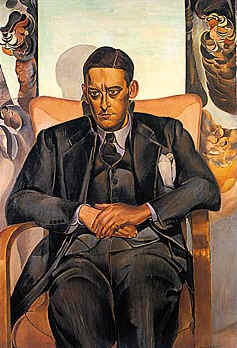
In my grade 12 English class, I had to read T.S. Eliot’s ”The Love Song of J. Alfred Prufrock”. I took nothing from the class except the line: “Do I dare to eat a peach?” which I repeated over and over when we went down to the cafeteria. Sitting in my jeans, I paid no attention to the preceding lines: “I grow old … I grow old …/I shall wear the bottoms of my trousers rolled.” I had no idea what it meant and didn’t care. Now that I’m halfway to cutting a Prufrockish figure in my own right, maybe it’s time to revisit that line. I discovered an explanation of Prufrock’s trousers in a book called Good Taste, written by my brother’s neighbours, Peter Trifonas and Effie Balomenos:
Historically … and for some time after the introduction of trousers as we now know them, men would commonly roll up the bottoms by hand to keep them out of mud and water. The advantage of the knee breeches worn in the 18th century was the fact that the hem was so high off the ground that they were not likely to be soiled. The stockings worn with knee breeches were much easier to launder than trousers. Good taste was thus created out of the very practical initiative of saving on the energy needed to wash a pair of trousers. Today, in the concrete urban metropolis, we aren’t concerned with trekking across muddy, unpaved city trails. Turn-ups are a matter of stylistic preference – not a practical way to keep trousers cleaner. In the early 1890s, the sporting country look with turn-ups was first tailored onto trousers, but even at the time, when the fashion was introduced, the response was far from positive. There was an uproar in the Houses of Parliament when in 1893 a certain Viscount Lewisham broke with the tradition of never turning up trousers and shocked the oldest and best-respected of statesmen by wearing turn-ups. However, by the early years of the 20th century turn-ups had become an accepted variation on regular trouser bottoms, most significantly for the younger generation of well-to-do entrepreneurs and professionals. The older male population, however, did not adapt well to the new tastes of a younger generation. T.S. Eliot immortalized the dilemma in ”The Love Song of J. Alfred Prufrock”, in which the aging, anti-heroic protagonist wonders: ”I grow old, I grow old. Should I wear the bottoms of my trousers rolled?”
A 21st century Eliot might write something like: “I grow old … I grow old … / Should I ditch my cell for an iPhone.”